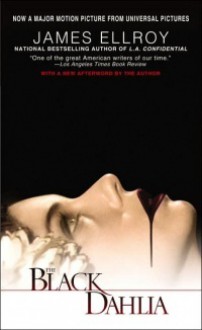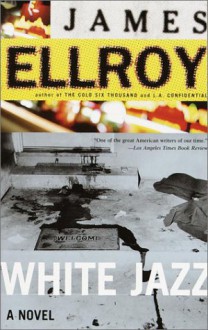
Rogue One: A Black Dahlia Story. James Ellroy uses the ‘missing week’ of notorious murderee Elizabeth Short to nuke 1940s Hollywood from orbit and take down some demons of his own. The world depicted here is stygian, this is not a beach read, but it is rivetingly written by a writer obviously, screamingly, in total command of his art. ‘Dahlia’ would be a career capper for most authors; for Ellroy, as we now know, he was just revving his engines.
“Dahlia” has far more in common with dystopian science fiction than noir or hardboiled fiction. We have a horrifying world in a Godless universe meticulously depicted, in which even the sovereignty of the human body is sliced and diced. I’m sure the academic and fan communities that Ellroy’s work has accrued would argue he is actually sui generis and while he’s obviously on a direct line down from Chandler I’m not going to disagree with that. This is the crime novel smashing through the walls of the literary novel. This is Dostoevsky goes to Hollywood.
Thank God, there is a plot and while it is serpentine Ellroy keeps tight control over it. Two ex-fighter cops – “Blanchard and Bleichert: a hero and a snitch” – encounter each other during a riot and a politically useful show-fight sets them up as partners. Lee Blanchard is shacked up in a conspicuously flashy crib with his rescued gangster’s moll Kay who is no mere cliché. Blanchard also had a sister who, natch, wound up dead and who, of course, drifts like gun smoke through his jittery psyche. He and buck-toothed, impressionable, Bleichert, ‘Fire and Ice’ as they’re dubbed, work jolly well together beating the living daylights out of various monsters until the discovery of Elizabeth Short’s bisected cadaver tears into their world like a rent in the fabric of space-time.
The Dahlia is “the most baffling piece of detective work the Department had ever seen, the disrupter of most of the lives close to me, the human riddle” and the case seriously messes with Lee ‘Benzedrine’ Blanchard and incrementally starts taking Bleichert down too. So we have multiple women cosplaying as the Dahlia in bed and out – the image of Elizabeth Short violated even after death – a meat-hook torture scene one suspects Scorsese must have read (a scene capped by the Shakespearean “So were Kay Lake and I formally joined”), a trip to that fine eatery Club Satan, Kay commenting that her ex “photographed me with animals”, a nightmare sandpit, a shack and house of horrors and more psychosexual games than ‘Love Island’. This could be, in the hands of a lesser writer, completely ridiculous and stories in which girls turning up dead overturns a whole anthill of troubles are ten-a-penny. In Ellroy’s hands, however, “Dahlia” reads like a crie de coeur which, a cursory Google informs me, the novel pretty much was.
The good stuff here is not just the prose or the whole tour de horizon, societal sweep of the novel. It’s the range of human responses depicted. It’s the empathy. It’s the sense of sickness, of soul attrition, of inner lives being corrupted. Ellroy has Blanchard and Bleichert beat each other’s brains out in the ring and has Bleichert wiping tears away when he visits his incapacitated father. He delivers a pitch black, genuinely laugh out loud Russian Roulette scene (“Five to go. Prepare for doggie heaven, Hacksaw…”). There’s also the final chapter. The final word. This isn’t a thriller. This isn’t ‘True Detective’. It’s a mournful prose poem by someone who has been to hell and back.
I anticipated Ellroy would be fairly hard work going in and indeed the richness of the prose, the slang and the argot, made “Dahlia” comparatively slow-going. Worth it though. What kept me reading was the richness of the world, Ellroy’s control, the occasional precis, the rogues gallery of characters, Bucky Bleichert’s heavily tested humanity but above all the through-the-roof beauty and brilliance of the writing.
And by ‘through-the-roof beauty and brilliance’ I absolutely do mean: ‘Fuck it, lets roll’.

 Log in with Facebook
Log in with Facebook 







